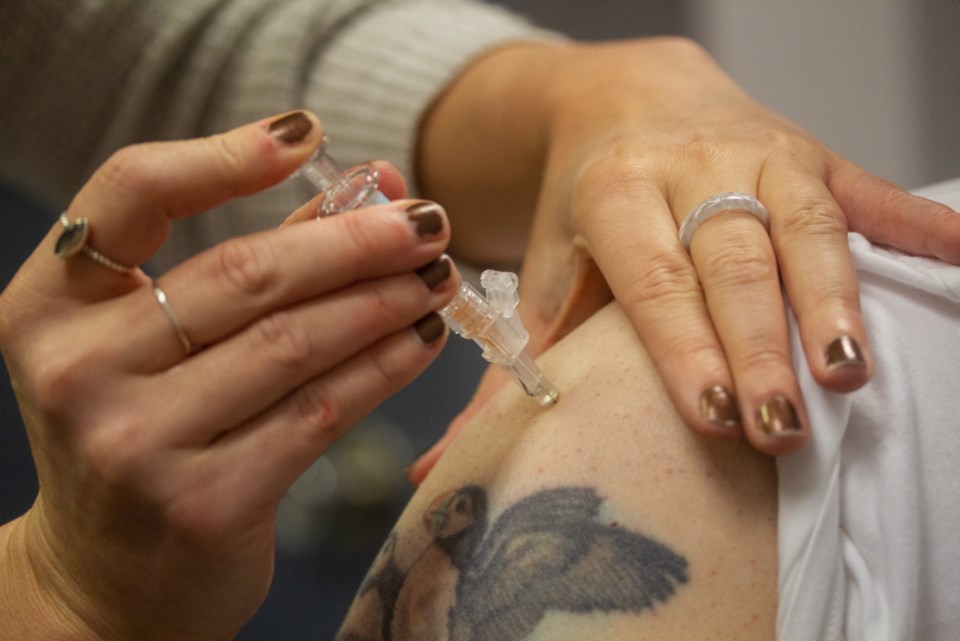According to a cross-party group of MLAs, changes should be made in the way our province’s health professions are regulated. Unfortunately, the proposals raise as many questions as they settle.
This year, an expert in health sector regulation, Harry Cayton, found the present system neither transparent nor consistent.
He pointed out numerous deficiencies, among them the fact that there are 20 separate oversight bodies for various health-care providers, a recipe for confusion and inconsistent standards of practise.
Moreover, these bodies range in size from the College of Physicians and Surgeons, which has 12,960 practising members, to the College of Midwives which has only 293, or the College of Podiatric Surgeons with just 78. Unavoidably, many of the smaller colleges lack sufficient resources to investigate complaints adequately.
Cayton also pointed to issues around the way discipline is imposed. For example, when the former vice-chair of the College of Chiropractors posted an anti-vaccination video online, he was fined and reprimanded, but the affair was kept in-house. Nothing was made public.
After five investigations raised serious concerns with former Vancouver psychologist Allan Posthuma, the College of Psychologists allowed him to quietly surrender his licence rather than face a disciplinary hearing.
However, perhaps the greatest weakness of the existing system is that caregivers are sitting in judgment on their peers. That puts them in a difficult position.
College boards comprise both public representatives and professional members. Nevertheless, on matters of competence and appropriate practise, it is the professional members whose voice tends to carry most weight.
What then is the solution? Among the reforms proposed by the working group, three stand out.
First, the number of colleges will be reduced from 20 to five. Physicians, nurses and pharmacists will retain their regulatory bodies. Each has enough members to perform its duties.
The four existing oral health colleges will be rolled into one, while the remaining 13 will also be merged. The intention is to strengthen these newly formed authorities by amalgamating their resources. We will return to this point in a moment.
The second change would establish a separate disciplinary body at arm’s length from the existing colleges. This is intended both to bring objectivity and greater transparency to the process.
Third, colleges will no longer be allowed to grant members the option of quietly surrendering their licence rather than face disciplinary proceedings. Members of the public are entitled to know if a practitioner has been guilty of misconduct.
The second and third of these proposals make sense. The first, however, is a problem.
A college of 13 separate health professions cannot possibly oversee all of the different disciplines it represents. A specialist in Chinese medicine may have no knowledge of naturopathy. An optometrist may know nothing about massage therapy.
The working group tries to deal with this by proposing sub-committees to deal with each specialty. But now we’re back to stage one. If the original colleges hadn’t the resources to carry out their duties, how will these sub-committees be any different?
Again, what about the various other professions, such as lawyers, veterinarians and so on. If discipline is lax in health care because the fox is guarding the henhouse, isn’t that also the case with these groups?
But there are more basic issues that need addressing. Recently, a registered naturopath in Victoria was investigated by her college over allegations she employed non-approved therapies, and may have counselled her patients against vaccination.
However when matters came to a head, she simply surrendered her licence and began practising as a homeopath, which is not a regulated discipline in B.C.
The same thing can happen if a registered massage therapist loses his licence. He can simply hang up a shingle that says “massage therapist.” So long as the word “registered” is omitted, this is permitted. Anyone can do it, regardless of training.
Yet, why would we permit possibly unqualified individuals to offer health-care treatment, simply by slipping below the radar in this manner?
The working group’s proposals represent some long-overdue improvements. But the job is only half done. Health Minister Adrian Dix should take their advice as merely a point to start from.
Meaningful progress will require opening up the mammoth Health Professions Act, no small task.
If that’s where we are headed, let’s have the full-scale overhaul that’s needed, not just a stop-gap approach.



